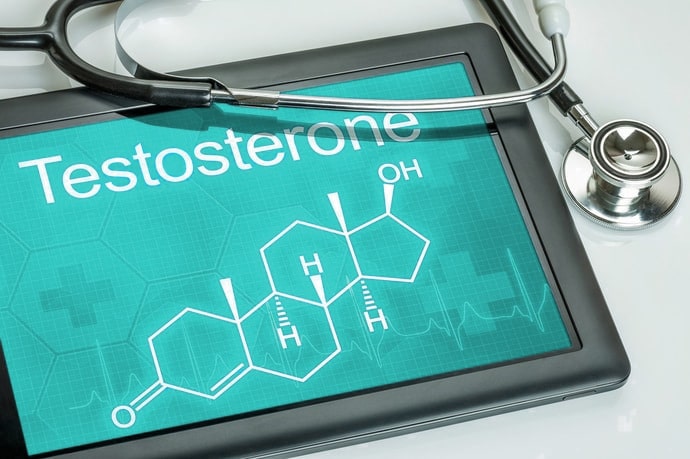The Hormone Zone recognizes the importance of having your hormones balanced and at optimal levels to achieve greater health and quality of life. However, we understand that while many people want to feel better – they may not know exactly what it takes to achieve optimal wellness.
Our hormones play a major role in virtually every process within our bodies. As chemical messengers, they are the catalysts to many metabolic reactions that help us produce energy, absorb and utilize nutrients, build and repair tissues, and more. Once these hormone levels start to decline, we start seeing bodily systems slow down in function.
For men, testosterone plays a major role in their health, virility, vitality, and even their appearance. Testosterone Replacement Therapy achieves miraculous results in many of our patients. Unfortunately, there is plenty of misinformation regarding this treatment. This page serves to provide our audience with a comprehensive overview of what testosterone replacement therapy actually is – while dispelling the myths about what it is not.
We invite you to visit this page frequently as we will be refreshing it with new and exciting content as the research progresses in this field. We’re going to discuss what happens in a man’s body as he starts to age – and what you can do to slow it down or even reverse the process. Aging is a natural process. However, that does not mean that we cannot use science and medicine to slow down this process and improve patient outcomes.

What is Testosterone and Why is it Important?
Testosterone is an anabolic hormone that is natural to the body. It is considered by many as the ‘male hormone’ given that men have much higher testosterone levels than women – and this hormone is responsible for many masculinizing effects. Studies display that this hormone also plays a major role in wound healing and tissue regeneration. However, this is assuming that the person’s testosterone is at optimal levels.
The Variance in Testosterone Levels
Individual testosterone levels may vary quite a bit depending on age, genetics, and lifestyle factors like sleep and your diet. Testosterone spikes during puberty, generally peaking at between 18-20 and then declining gradually – at about a rate of 1% per year. While this doesn’t seem like much – most men feel it catching up to them by about age 30.
Symptoms of Low Testosterone
Many people attribute their symptoms to aging or stress. They accept it as a natural part of the aging process and they throw in the towel. They feel tired, they lack physical strength, and they throw in the towel. However, we’re here to tell you that this is not a normal part of aging and that you deserve better. Do you have low testosterone? Here are some of the symptoms:
- Reduction of muscle mass – Testosterone positively influences the amount of muscle mass you carry.
- Increased fat mass – Androgens have a fat-burning effect. Testosterone is an androgenic hormone. Hence, as your androgen levels decline, your body stores fat more easily.
- Lack of energy – Individuals with low testosterone levels experience decreased energy levels and motivation to tackle routine activities.
- Poor memory and focus – Testosterone plays an important roll in the ability to capture, retain, and recall information.
- Mood changes and anxiety – As testosterone levels decline, important brain chemicals decline, such as dopamine, which is needed for maintaining confidence and a positive outlook.
- Reduced sexual desire – One of the most important hormone signals for maintaining a healthy libido and the ability to achieve and maintain erections.
- Poor wound healing – Testosterone is a powerful repair and regenerative hormone.
I Have Symptoms, But My Doctor Says My Levels Are Normal – Now What?
Many doctors are hesitant to prescribe testosterone replacement therapy due to misconceptions about this form of treatment or simply due to ignorance on the matter. Additionally, the range for a ‘normal’ testosterone level varies quite a bit. There is some variance with the numbers depending on the laboratory you work with and their reference ranges, but most testosterone levels ranging from 200-1150 ng/dl are considered ‘normal’.
Now, if you’re on the higher end of that – then you shouldn’t be experiencing symptoms. However, if you’re on the lower end of what we consider normal and you’re experiencing symptoms, then you’re a perfect candidate for testosterone replacement therapy.
Many doctors refuse to prescribe this therapy because they simply do not possess the knowledge and experience in managing their patients on this therapy. Testosterone replacement therapy under the guidance of an experienced medical practitioner is a safe and effective treatment for patients looking to restore a bit of their youth and vigor.
The team of medical experts at The Hormone Zone has decades of experience in prescribing and managing patients on TRT. Our comprehensive plans include routine blood work to ensure healthy biomarkers, quality testosterone products, and other related hormones. Each patient consults with our doctor regularly to review their blood work and address any concerns with their therapies. When managed effectively, this is a very safe and powerful treatment.
What You Can Expect from Our Testosterone Replacement Therapy Protocols
- Faster Recovery Times
- Increased Muscle Mass
- Improved Strength
- Fat Tissue Reduction
- Increased Energy and Vitality
- Better Memory and Focus
- Improved Mood
- Enhanced Sexual Health
- & Many More Benefits
How Testosterone Relates to COVID-19 Risk in Men
There is a recent study out of Hamburg Germany demonstrating that low levels of testosterone increase the risk of poor outcomes when infected with SARS-Cov-2 (COVID-19). Optimal levels of testosterone helped improve outcomes in men who were infected with the virus.
Another study published on April 27, 2020 demonstrated testosterone is reduced by age and relates to preexisting conditions also related to poor Covid-19 outcomes. The study showed low testosterone levels can lead to a reduction in respiratory muscle activity, while normal testosterone levels have a protective effect on the respiratory system.
Researchers also found a correlation between inflammation, testosterone, and the virus, highlighting the role of pro-inflammatory cytokines in the progression of the Covid-19 infection and how any successful treatment must include reducing that cytokine activity. Testosterone may down-regulate this inflammation and the authors suggested “testosterone may have a role in the cascade of events leading to progression of Covid-19 infection due to the cytokine storm.”
Are You Interested in Learning More About Testosterone Replacement Therapy?
Check back frequently for more information and updates to this page as we are consistently posting our findings and experiences. Also, if you have any immediate questions, you can reach us at 480-613-8587 to speak with our professionals today.












